EU warns Britain it can have no say during Brexit transition
The European Union has warned Britain that it cannot expect to have a say in EU decision-making once it departs from the bloc, including during a two-year transition period starting from 2019 meant to help smooth the exit.
The warning came on Monday as European affairs ministers from the member states adopted new orders for the bloc's Brexit negotiator, Michel Barnier, laying out the terms of the transition, which would run from the end of March 2019 until December 2020, when the bloc's current long-term budget ends.
Barnier's deputy tweeted that the negotiating guidelines were endorsed in Brussels in two minutes, although EU ambassadors had spent weeks drafting them.
Bulgarian Deputy Prime Minister Ekaterina Zaharieva, whose country currently holds the EU's rotating presidency, said the ministers gave "a clear mandate" to the UK on their requirements for the Brexit transition period.
She said EU law would apply in Britain during that time and that the country would have "no participation in the EU institutions and decision-making."
The new guidelines include a demand for clarity on what future relations between the UK and EU should look like.
The EU insists that Britain should also abide by any new European rules that are introduced during transition.
This has already raised concern in Britain, with London's Brexit negotiator, David Davis, demanding last week "a way of resolving concerns if laws are deemed to run contrary to our interests and we have not had our say."
Swedish EU Affairs and Trade Minister Ann Linde said "when you have left the European Union, you have left, and this is just a transition to a new arrangement.”
The transition period should allow UK Prime Minister Theresa May's government to prepare its future trade ties with the wider world, but London would not be able to introduce any trade pact before 2021 without permission from its EU partners.
The British government has faced fierce criticism both at home and by the EU for its lack of clarity on its Brexit strategy.
The uncertainty has raised fears that Britain could crash out of the bloc without a trade deal, incurring heavy costs on domestic economy.
Nearly half of British voters support holding a second referendum on whether the UK should remain or leave the EU amid growing concerns about the government’s Brexit negotiations with the bloc, a new poll by The Guardian newspaper shows.
Rights group: Israel expediting settlements legalization to block Palestinian state
Israel seeks Zionist colonial gains through recognition of Somaliland: Hamas
VIDEO | Afghan officials reject UNSC claims of terrorist groups’ presence
VIDEO | Resistance is also alive in occupied West Bank
Iran says Israel’s recognition of Somaliland aims to destabilize Red Sea, Horn of Africa
UN renews ceasefire call as over 200 civilians killed in RSF ethnic attacks in Sudan’s Darfur
Iran’s soft power to quench regional thirst for healthy beverages
Ansarullah: South Yemen proxy war meant to help Israeli dominance


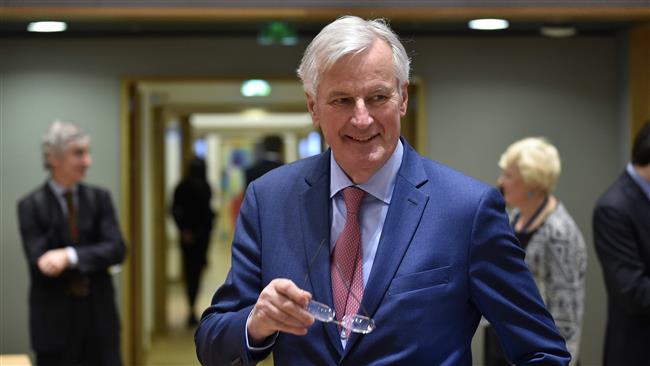



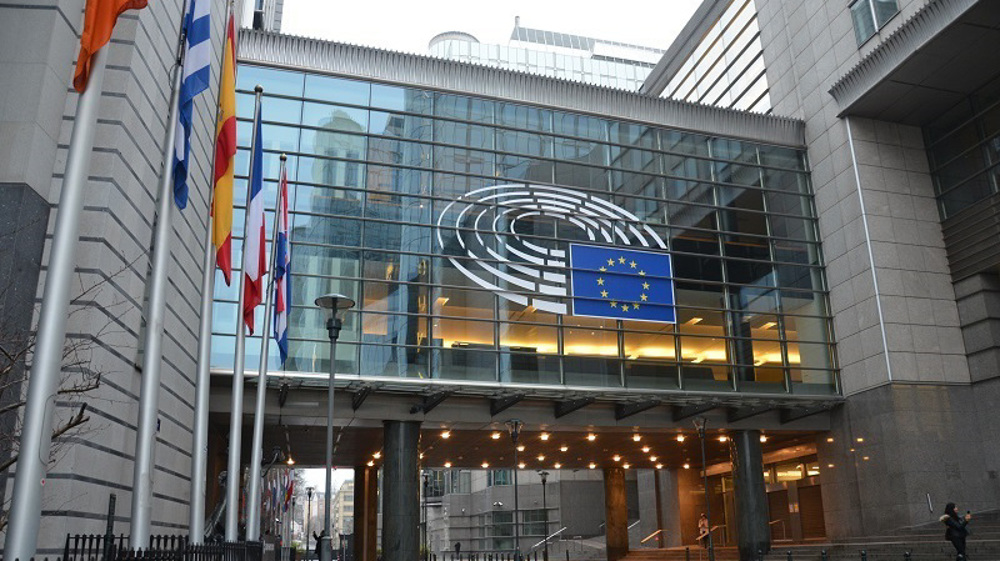



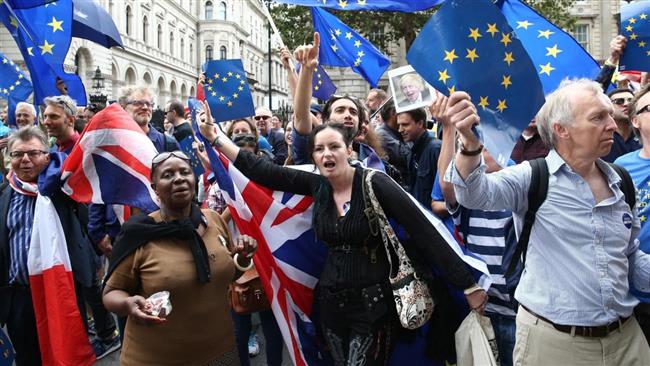
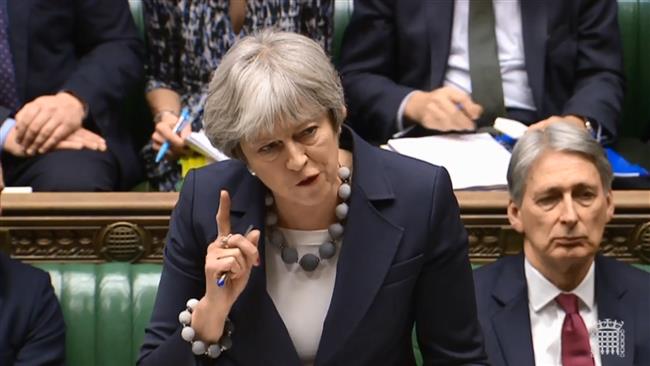
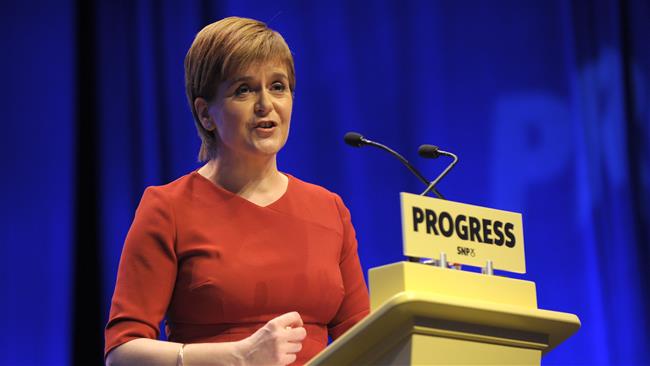
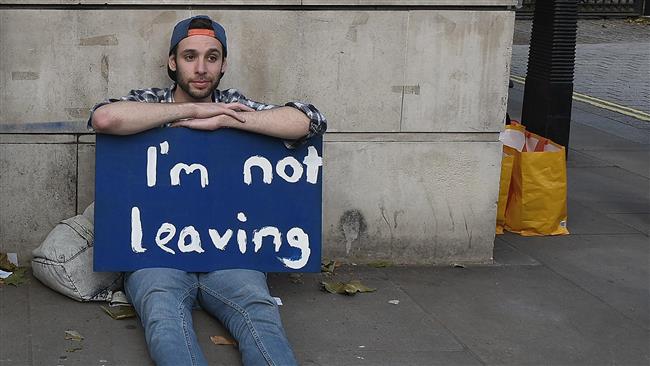
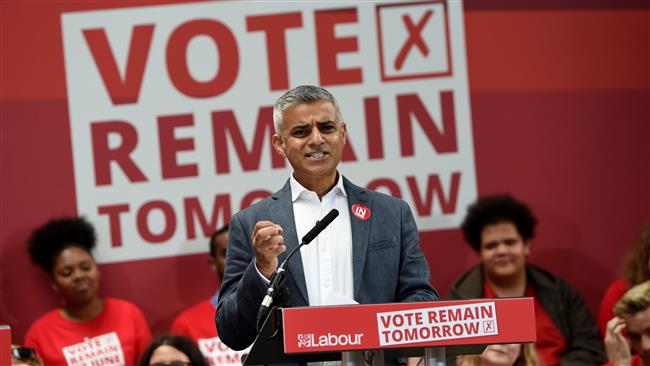
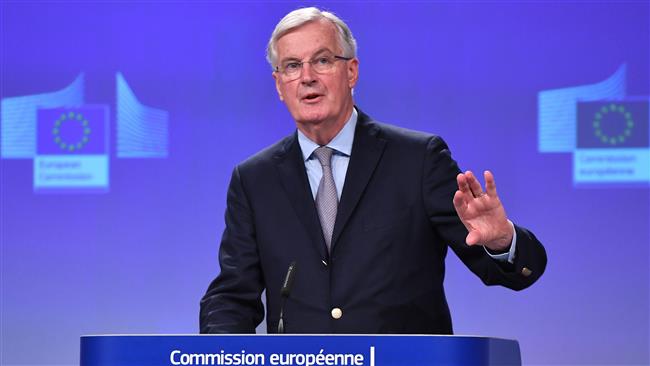

 This makes it easy to access the Press TV website
This makes it easy to access the Press TV website